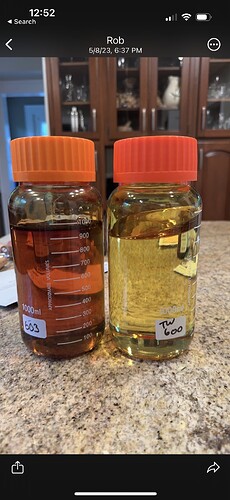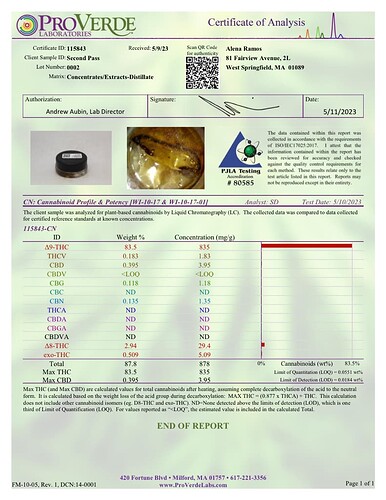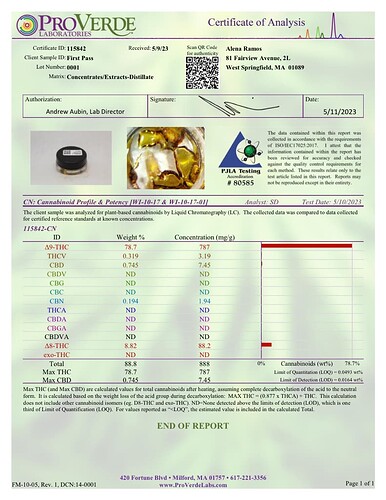I have established that they are most likely converted liters. 78.7% THC is the lighter liter, and 83.5% is the darker liter. I have done some research on converted liters, and people said that it burned their throats and gave off a bad high. Is this true with the level of THC liters I have?
how?
I certainly see no consensus on the subject over here: How am I able to tell from a COA if it is a converted liter? There are traces of D8 and ones testing at 78% and the other at 84%
although folks what know have repeatedly stated that “yeah, you can get that much D8 accidentally…”
What if it’s real d9 and somebody just wanted to make an extra 8%? No exo-thc
Edit when in doubt distillate mixes well with sugar to make infused gummies. You are in the in doubt category imo
Honestly just mix both liters since one is dark and one is light then make carts. That blend 73/8 isn’t ideal but it’s not that awful either it’ll be fine in carts
Only issue is no one really knows if there are side effects yet with smoking conversions
And depending on what state you are in - the amount of D8 in your licensed product is regulated. So be mindful of where you are, what you are mixing and what rules you have to follow.
Also - in some states mixing TWO batches of something together means you have to do testing over again (aka more costs) but you have to do that in some states to put them in carts anyway.
I’d say the LARGER issue here is that you are completely missing the point of GMP and producing quality product. That point is know what you are doing, know what materials you are using, and create a quality product using those processes and materials.
You have some questions about process which says you don’t really know what you are doing.
You have some questions about the materials, what they are, if they are labeled correctly, and how you should know/use them.
That means that you don’t have even the most basics of the foundations of quality and therefore YOU SHOULD NOT MIX THEM. Indeed - you shouldn’t be using the stuff that you are questioning the quality for at all, you should return it to where you got it (if you can) otherwise you are knowingly adulterating your products which could in turn cause harm.
Are converted liters safe, we aren’t 100% sure. But you aren’t even sure if what you have is a converted liter or what other things could be in it. That means, for sure, that you don’t have enough information to move forward.
Don’t potentially add something terrible to something you want other humans to consume when you don’t know. Those impurities could be anything AND your lab might not even have tested for those impurities. They could be something “safe” but how do you know? The real answer is that you don’t.
I know it sucks to have anyone tell you not to move forward with producing products because producing products is your business. But how awful would you feel if some college student was huffing on your cart and ends up in the hospital because you decided to go forward with a starting material that you were 100% SURE about?
I’ve accidentally without any known unknowns hurt consumers before. I still carry that with me, I probably always will. And I tell you, its not worth it. <3


